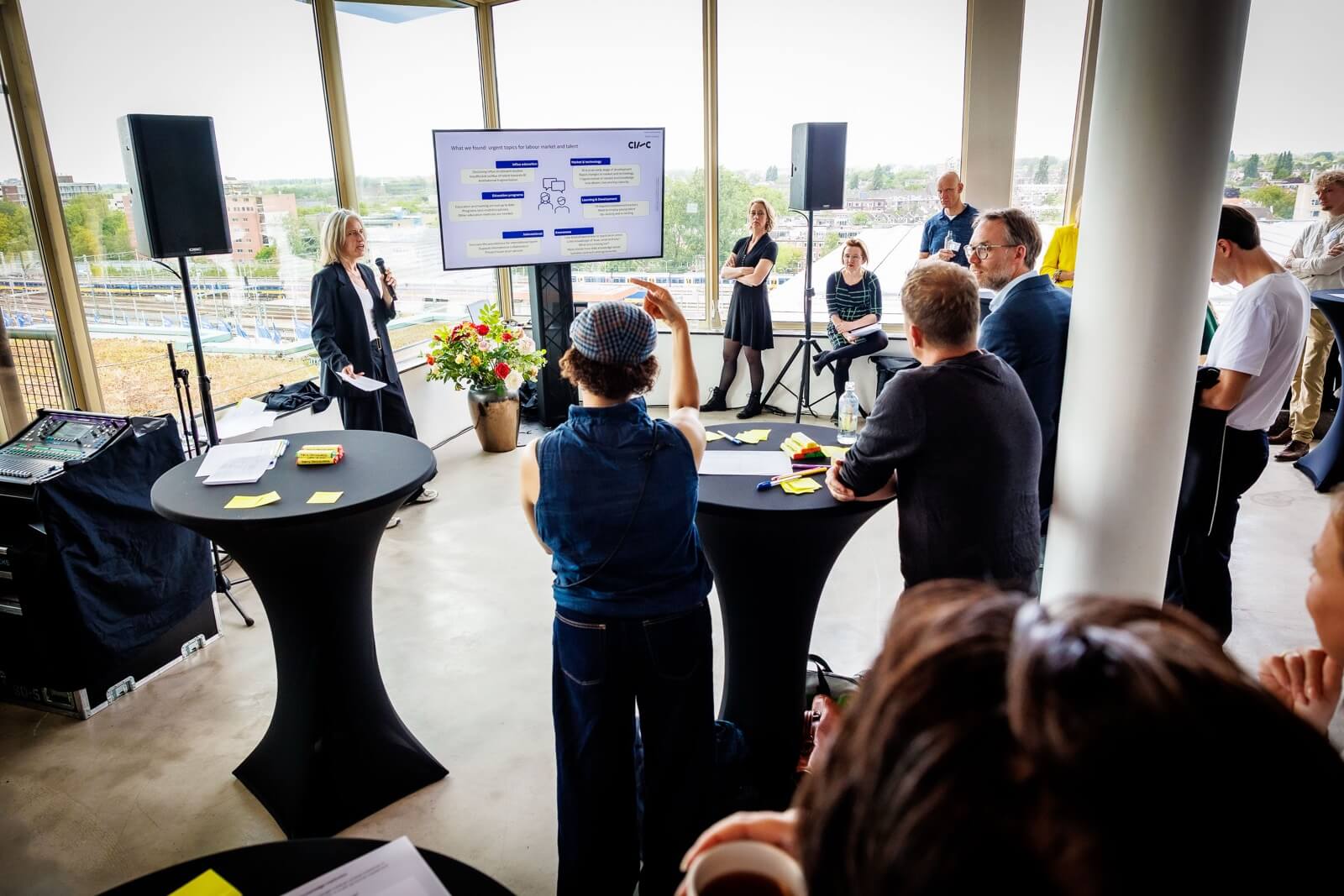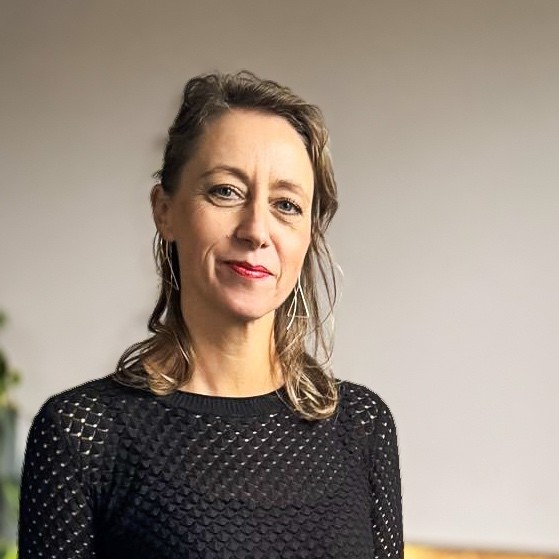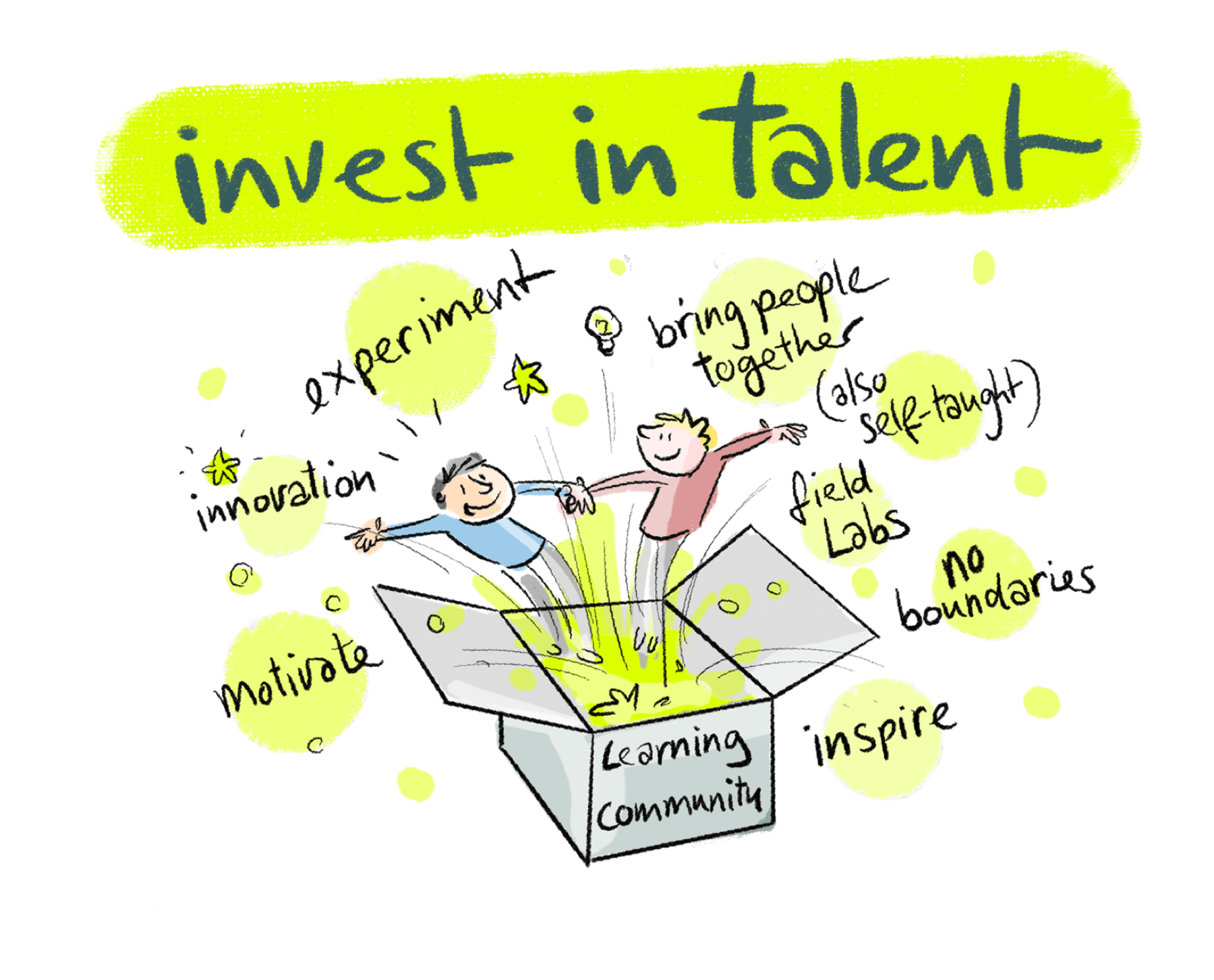2C: Investing in Talent for IX

This interactive workshop focused on attracting, developing, and retaining talent within the Dutch immersive (IX) sector.



Together with participants, the session mapped key opportunities and needs: What skills are essential? Where are the gaps? And how can talent be strengthened sustainably within the IX ecosystem? The session consisted of an interview, a user case, and breakout discussions, building on insights already gathered within CIIIC.
Central Message
The use of IX alone is not enough—understanding IX is just as important. That understanding starts with shared language and awareness of its potential. To sustainably strengthen the field of immersive experiences, there is a need for education, infrastructure, and a common vocabulary.

Illustration by Suus van den Akker
Heleen Rouw – CIIIC
CIIIC works along five programme lines:
- Knowledge & Methods
- Human Capital
- Ecosystem & Facilities
- Innovation & Demonstration Projects
- Synergy & Coherence
The Human Capital track focuses on:
- Expanding and strengthening the talent pool
- Using IX as a learning solution
- Investing in upskilling, reskilling, and train-the-trainer programmes
Preliminary insights from interviews with makers, educators, and researchers include:
- A decline in student intake in relevant educational programmes
- Fragmentation between institutions; lack of a coherent IX learning ecosystem
- Low earning potential and fragile business models in the IX field
- A need for experienced professionals; difficult to integrate young talent
- Outdated educational content, lagging behind technological developments
- Limited international connections, with a risk of brain drain
- Low awareness of IX among potential clients, including lack of sustainable commissioning
These insights will guide the development of the Human Capital programme.
Mieke Dols – NWO/SIA
Mieke announced preparations for a new funding call focused on Learning Communities, aiming to support public-private partnerships at six locations across the Netherlands. These partnerships between universities (of applied sciences) and market actors aim to foster talent development from entry-level to career growth, by connecting education, innovation, and professional practice.
Key Themes and Observations
Concrete challenges and insights:
- Education: Fragmented offerings, lack of dedicated IX teaching staff and curricula
- Learning Offer: Insufficient focus on the development of educational programmes; international offerings exist, but the Netherlands is lagging
- Talent Retention: Difficult to keep or help talent progress
- Future Resilience: IX needs not just technical but also commercial and organisational support
- Pragmatism: Start small, make progress visible, and ensure clear assignments
Key questions for the breakout groups:
- What do learning communities mean for knowledge institutions?
- What do they mean for the market?
- What are the priorities for talent development?
Suggestions and Recommendations
- Create learning spaces outside formal education: labs, experimental formats, and learning opportunities within companies—without relying solely on traditional courses and curricula
- Facilitate peer learning and connect artists to meet real-time learning needs
- Consider quality labels for training that can also be recognised internationally
- Support cross-sector bridge-builders
- Leverage existing communities and networks
- Develop generic IX applications (e.g. citizenship, language learning) to reduce fragmentation across educational organisations
Future and Ambition
The Netherlands has the potential to become a hub for IX education—either by training talent locally or attracting international programmes. More hands-on assignments and real-world challenges within curricula can help bridge the gap between education and practice.
There is strong urgency around IX in vocational education (MBO). Experimentation and discovery should be encouraged in the early years of education—before rigid assessments and outcomes are imposed. This requires support and facilitation so that it becomes a relief, not an extra burden, for educators and institutions.
Follow-up
This session contributes directly to the development of CIIIC's Human Capital track. The outcomes will be presented during the upcoming Advisory Board meeting on 17 June 2025 and will inform both the formal Learning Communities call (NWO/SIA) and broader market-facing initiatives. Participants were invited to continue contributing their input, including via written notes submitted during the session.